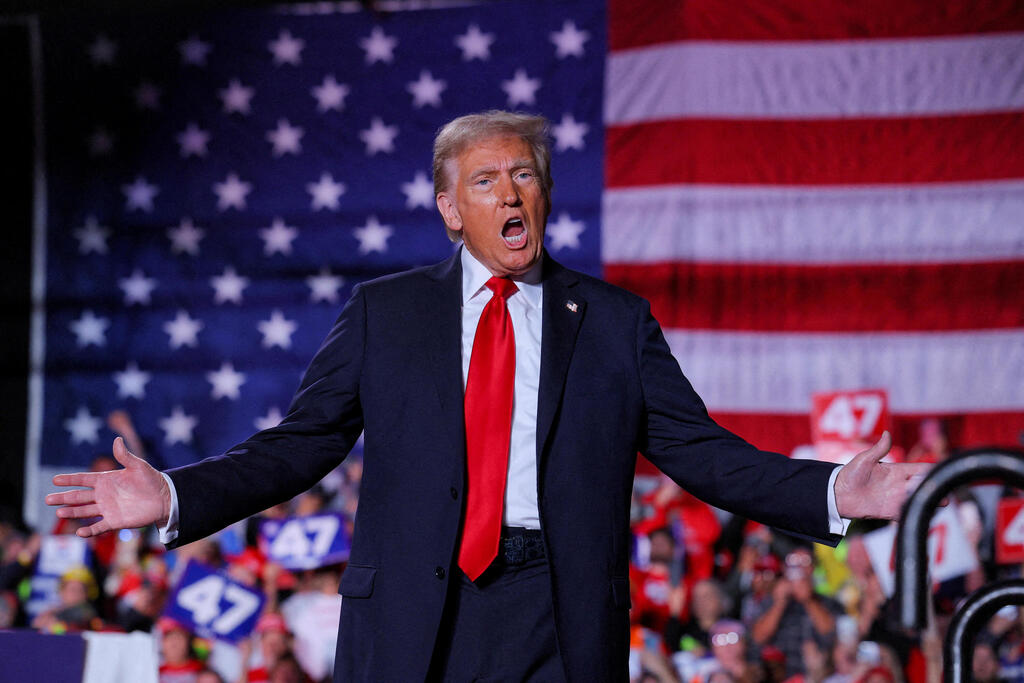Getting your Trinity Audio player ready...
Prime Minister Benjamin Netanyahu is set to convene a meeting on Tuesday to discuss the arrest warrants issued by the International Criminal Court (ICC) in The Hague against him and former defense minister Yoav Gallant.
The decision will determine whether Israel will appeal these warrants. Israel has until Wednesday to officially notify the ICC if it intends to appeal the decision. Legal experts suggest Israel has grounds for a legal appeal, though this remains uncertain. The appeal can challenge the judges' arguments but not the warrants themselves.
Judgement rendered by the iCC
(Video: UN WEB TV)
In contrast, the political leadership suggests ignoring the warrants and delivering a "lesson" to the court through severe sanctions, which they believe will be imposed by the incoming administration of U.S. President-elect Donald Trump.
"The Americans plan hellish sanctions against any country that assists the court, and that's where it will end," an Israeli official said. "We shouldn't have to beg before a body we have no trust in."
However, court officials have provided indications Israel could manage the situation if it establishes an internal inquiry.
Given the strong responses from senior members of the incoming Trump administration to the court's decision to issue the warrants, Jerusalem is inclined not to appeal and to wait for developments on the international stage, namely Trump's entry to the White House on January 20.
2 View gallery


Will they appeal or wait for Trump?
(Photo: REUTERS/Piroschka van de Wouw/File Photo, Haim Goldberg)
"My assessment is that the court will eventually back down because the pressure on it will be unprecedented, and they have never experienced anything like it," an Israeli source familiar with the details remarked last week. "They will beg us to give them a way out. After they undergo a 'lesson' that brings them down to earth, we might then consider helping them climb down."
While there is no option to appeal the arrest warrants themselves, an appeal can be filed against the court's determinations with the appeals chamber. However, such appeals do not freeze the warrants, fueling skepticism in Israel about the appeals process. The appeals chamber includes diplomats from Mongolia, Peru and Japan—figures perceived as lacking legal expertise and familiarity with the Israeli-Palestinian conflict.
Israeli officials fear ICC Prosecutor Karim Khan may pursue secret arrest warrants against IDF soldiers and officers. The issue is now shifting to the political arena, as the court’s decision could directly impact Israeli leaders. The 124 countries party to the Rome Statute, which governs the ICC, would be legally obligated to arrest and extradite Netanyahu or Gallant if they enter their jurisdiction.
Gallant is scheduled to travel to Washington next Sunday for high-level talks with U.S. officials at the White House and State Department. This marks his first visit to the U.S. since the ICC issued an arrest warrant against him. The trip follows Netanyahu’s previous ban on Gallant’s U.S. visits before his dismissal earlier this month.
Get the Ynetnews app on your smartphone: Google Play: https://bit.ly/4eJ37pE | Apple App Store: https://bit.ly/3ZL7iNv
In response to the ICC decision, the White House has expressed strong opposition. National Security Council spokesperson John Kirby said that the United States "rejects the decision fundamentally," criticizing the prosecutor’s haste and the errors in the process. He reiterated that the ICC lacks jurisdiction in the matter and confirmed ongoing coordination with Israel and other partners to determine the next steps.
As the U.S. is not an ICC member and has not signed the Rome Statute, Gallant faces no direct legal risk during his visit. However, the situation may complicate his travel route, as some European countries could potentially block the use of their airspace.







